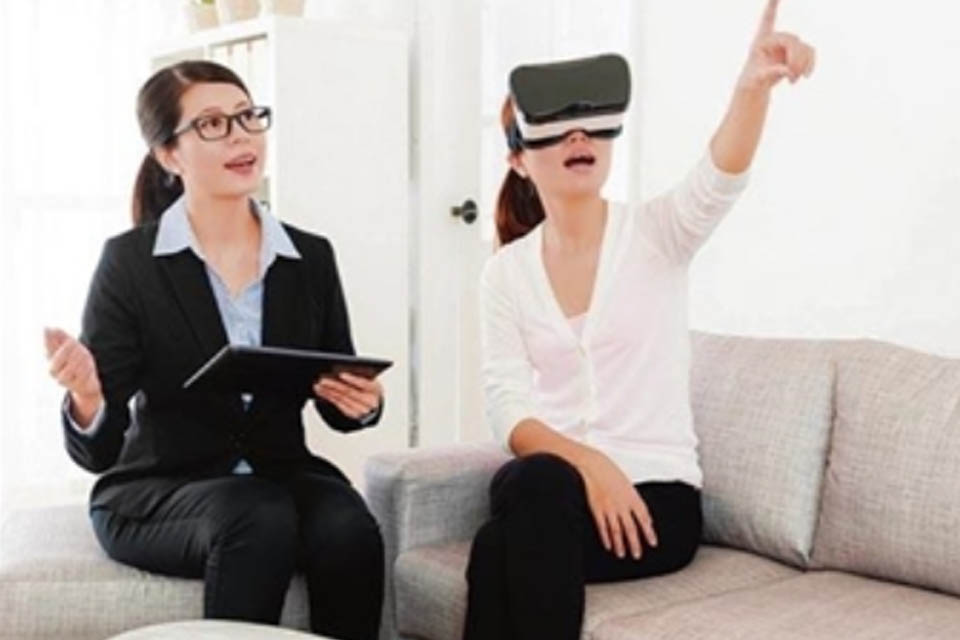Virtual Reality: An Upcoming Trend In Today’s Real Estate Industry
December 08, 2018
Technology is playing a pivotal role and is also becoming an indispensable part of the real estate sector. As rightly said, a home is not a place but a feeling, and purchasing of a home holds an emotional sentiment for buyers, real estate developers understand this and have been raising the standards in which they present their projects to buyers- i.e. by introducing 3-D modeling and virtual reality into the property buying process to provide homebuyers a holistic view of their property.
 Credits : www.afternoondc.in
Credits : www.afternoondc.in
Virtual reality can be defined as an artificial environment which is created with the help of 3D 360 Renders or 360- degree Photography and displayed to the users in a way that it is believed to be real. Users can interact with the simulated environment through various auditory, visual and even haptic techniques. Virtual reality, which has a considerable impact on several industries, is playing an important role, now, in the real estate sector as well. In India, alone, the real estate sector is likely to cross USD 175 billion by framing marketing strategies that revolve around virtual reality.
As ‘seeing is believing’, especially for first time home buyers, through the use of virtual reality it is convenient to showcase large three-dimensional models of the property and its neighbourhood, thus giving a holistic and immersive experience. The online real estate marketplaces have incorporated virtual reality to give a 360-degree digital tour of the property wherein potential buyers can also customize the property in accordance with their desire by clicking on special points in the field of view. As an example, virtual reality enables the prospective home buyers to click on the different rooms available in the property and design the same in their own way by adding or removing certain elements. This, undoubtedly, allows the buyer to have a quick look of how the property will look like after adding certain personalized elements and enables them to take a better decision much quicker as compared to the earlier property buying process.
Take for example, the app named as IKEA Place. It is a fantastic application that allows users to virtually decorate their property by selecting and placing various furniture items from their online catalog. Hence, before buying a property, prospective buyers can have a better idea of how the place will look like when they will design the same in their own way.
Implementation of virtual reality gear supported by 360 walkthroughs can thus reduce the decision-making duration of a buyer from site visit to purchase. In today’s fast-paced life buyers find it difficult to visit the property multiple times to conclude their decision to buy a property. In India where buying a property is a family affair, this can be a game changer for NRI prospects as well.
To conclude, as customer satisfaction increases with the delivery of product meeting their expectations, an added benefit for real estate players looking to invest into virtual reality is the generation of customer data-insights that can provide clarity on what seems to be working and what needs to be improved.
Having said that, as of now virtual reality is still new to the real estate sector and is considered a little expensive to incorporate, but the initial performance of this relationship between real estate and virtual reality and the humungous profitable returns that comes with it has made it clear that this relationship is bound to go a long way.
Share This:
Read all Thane Real Estate Latest News
To Know About Thane Real Estate Development Contact Us at 022 2580 6868
Source:www.afternoondc.in

